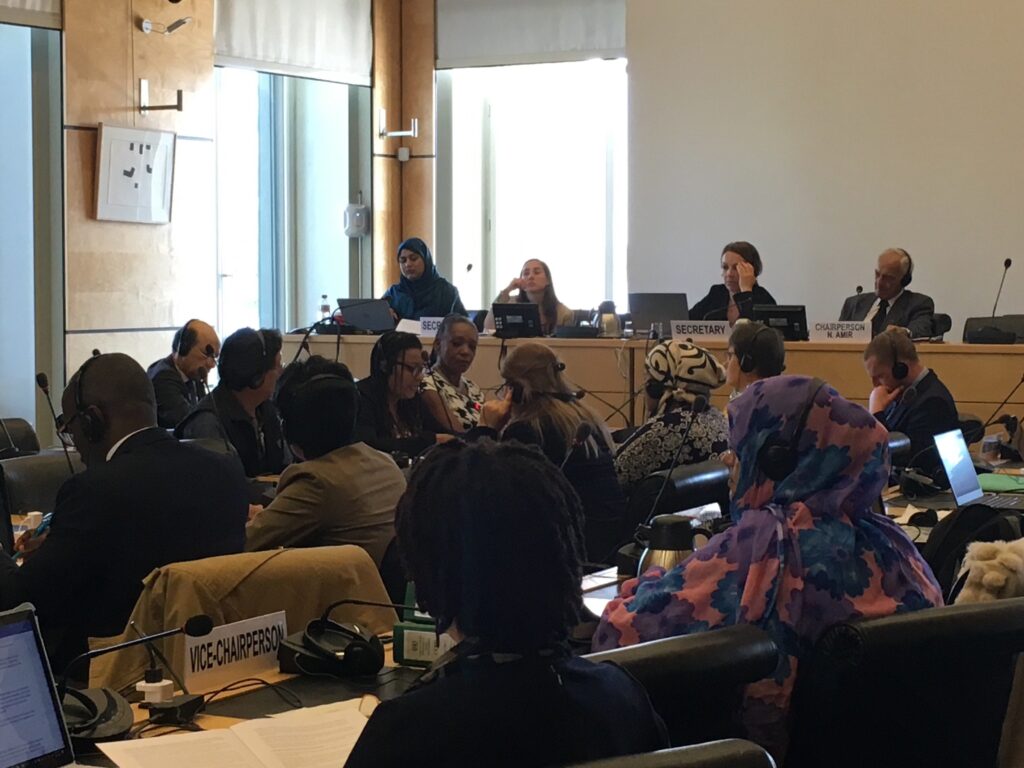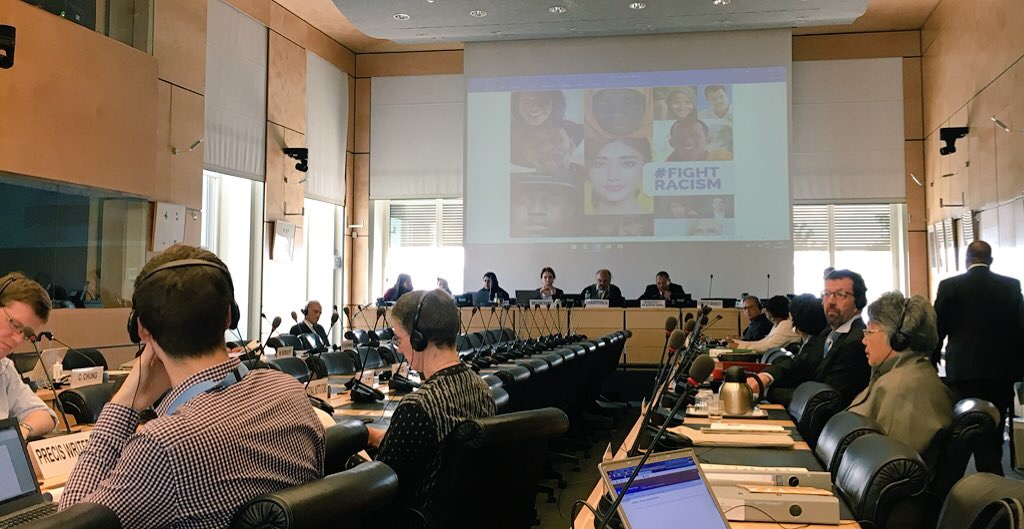“Loving and Resisting from Diversity:” Race and Equality Celebrates LGBTI+ Pride Day
Washington D.C., June 28, 2021.- To commemorate this LGBTI+ Pride Day, The Institute on Race, Equality and Human Rights (Race and Equality) chose the slogan “Loving and Resisting from Diversity.” This slogan pays tribute to LGBTI+ organizations and activists who each day wage a powerful struggle to combat discrimination and violence, and move towards the recognition of their rights despite living in a context as adverse as Latin America and the Caribbean when it comes to human rights.
Although there has been little progress in the region in terms of recognizing and guaranteeing rights for LGBTI+ people, we want to exalt the great capacity to love and resist that people with diverse sexual orientation and gender expression or identity continue to sustain, when facing a society that attacks, excludes, and humilitaes them, in addition to increased attacks and instensified hate speech.
On this day we cannot refrain from remembering the Stonewall riots carried out in rejection of the police raid that took place in the early hours of June 28, 1969, in a bar known as Stonewall Inn in the New York neighborhood of Greenwich Village; this location is where LGBTI+ people used to meet. A year later that date would be declared as LGBTI+ Pride Day as a way to reclaim and celebrate the struggle for freedom and respect for the rights of this community.
Progress and Challenges
In the beginning of this month of June, the Prosecutor’s Office of Salta, Argentina, confirmed that the skeletal remains found by a day laborer and his son in a desolate area north of the city corresponded to Santiago Cancinos, a young trans man who disappeared in May 2017, who reported he was being bullied by his school and classmates.
This is one of the most recent and shocking events. However, when it comes to violence and discrimination, Latin America and the Caribbean accumulates a long list of episodes ranging from threats and verbal assaults to police brutality and murder. Hate crimes that in most cases remain unpunished- this lack of will and judicial mechanisms only generates more negligence among authorities when making justice a priority.
LGBTI+ and human rights organizations closely followed the case of Vicky Hernandez v. Honduras, in which the Inter-American Court of Human Rights (IACtHR) determined the State’s responsibility for the alleged extrajudicial execution committed against Hernández in June 2009, which occurred in the midst of the tense socio-political context generated by the coup d’état that year. This set an important precedent of ensuring the application of justice in future cases of violence against LGBTI+ persons at the regional level.
With respect to the COVID-19 pandemic, we see how the situation of vulnerability of this population is exacerbated, as the health emergency deepens conditions of inequality in the fields of health, social assistance, education, work, among other inequalities. In addition, States have not taken into account the LGBTI+ realities of discrimination and institutional violence against gender nonconforming and trans people. For instance, in Colombia, people with diverse gender identity or expression were left in limbo with policies like “pico y género.”[1]
However, the commitment to fight for a more just and equitable society for all people has also led to celebratory results in the last year, like the approval of equal marriage in Costa Rica. We are slowly witnessing the progress of campaigns and bills for the recognition and guarantee of the rights of LGBTI+ people. In Argentina on June 11, the Chamber of Deputies approved the bill that guarantees the trans-transvestite labor quota. The so-called Diana Sacayán – Lohana Berkina Law, who were recognized defenders of the formal trans and transvestite labor inclusion, was passed with 207 positive votes, 11 negative votes and seven abstentions.
Let us celebrate!
Race and Equality spoke with LGBTI+ activists from different countries in the region and asked them about the importance of celebrating LGBTI+ Pride. These are their answers.
Christian King, trans non-binary activist and member of Trans Siempre Amigas (TRANSSA) – Dominican Republic: For me, celebrating LGBTIQ+ Pride Month is nothing more than claiming my personhood, and at the same time reclaiming all the people who have fought, who have lost their lives making themselves visible, those people who have led us to enter this movement of struggle and recognize ourselves as members of the LGBTIQ+ community, and to demand that the State recognize our rights.
Agatha Brooks, trans activist and member of Trans Siempre Amigas (TRANSSA) – Dominican Republic: Celebrating Pride Month is to make ourselves visible as the rainbow flag represents each of us, we are a brand that grows more and more every day. We become more visible so that equality becomes present in our communities, in our country and throughout the world
Darlah Farias, Coletivo Sapato Preto – Brazil: Celebrating LGBTI+ Pride is celebrating the life of this population. Not just the lives that struggle today, but all the lives lost so that we could be here. Principally I, as an Afro and lesbian woman, carry all my ancestry with me and understand that our struggle is forged in revolution and reinvention.
Thiffany Odara, FONATRANS – Brazil: Celebrating LGBTI+ Pride is celebrating the right to life, my existence, the right to be who I am, it’s celebrating the memory of my ancestors. Celebrating who I am is the greatest challenge for Brazilian society. The challenge of resisting to guarantee policies of social equity. Long live the LGBTI+ Pride Movement! I’m proud to be who we are!
Gael Jardim, Trascendendo – Brazil: Celebrating LGBTI+ Pride Day is about making a real difference. It’s remembering that this day was born out of a revolt so that people can have the right to exist in society, and no longer in ghettos, closets or exclusion. To celebrate Pride Day is to give visibility to our cause and our struggle, which is not a day but a whole year of citizenship.
Santiago Balvin, nonbinary transmasculine activist and member of Rosa Rabiosa – Peru: Pride for me is important because society has imposed feelings of guilt and shame on who we are, but we rise up against them by showing pride in who we are and by showing ourselves in an authentic way. It is also very important to know that we have been in hiding and that visibility has been important to be able to show ourselves, and also give voice to our problems.
Leyla Huerta, founder and Director of Féminas – Perú: Celebrating Pride Day is very important to me. It’s the day in which we recognize ourselves as brave, strong and resilient. It is also a date of commemoration for all those people who are no longer with us, and who, due to their sexual orientation and/or gender identity, were exterminated because that is the word that best fits our disappearances. A society that does not recognize us, a society that limits us in our own development, it does just that: exterminates us. Pride Day, as the word conveys, is a day in which we should be proud because we are here, resisting, advancing and educating.
Roberto Lechado, independent comedian – Nicaragua: Celebrating Pride Month is to celebrate life, but also to recognize myself as part of a community and remind myself that I’m not alone and that’s a super nice feeling. It is also reminding myself that it is okay to be the person I want to be, that my love is valid and valuable, and my existence is magnificent and important. Celebrating Pride is also for me, to make visible these colors that many times in the day to day become opaque, and to say to society “we are here, we exist, we deserve, and we matter!”
Miguel Rueda Sáenz, director and founder of Pink Consultores – Colombia: For me, celebrating gay pride means a lot of things. There’s an important historical force, it also shows community and group strength and fundamental social aspects, and it has an enormous personal stance as it recognizes me as a gay man, this day allows me to shout even louder. It is very important for me on June 28 to be able to celebrate who we are and why we exist.
Lesley Wolf, actor, dancer, and BA in Performing Arts – Colombia: Celebrating LGBTI Pride is more than a celebration, it turns into a demand for resistance. It’s re-signifying and dignifying a struggle that not only costs us nor takes us just a month, but a whole year, it’s a constant activity.
María Matienzo, activist and Independent Journalist – Cuba: For me to celebrate Gay Pride Day is to celebrate the claim of rights that we should all have as citizens of the world, although it’s not really a matter of one day, it should be a matter of a lifetime.
For Race and Equality, it is an honor to know and accompany the work that is being carried out, individually and collectively to defend and promote the rights of the LGBTI+ population. Denouncing the violence this population faces in different areas of society, making visible and documenting their realities and demands, and strengthening their capacities to influence Sates and the human rights mechanisms of the Inter-American and United Nations system.
For us, celebrating LGBTI+ Pride Day means reinforcing and renewing our commitment to working for a more just and equitable society for all people, without any discrimination. In addition, it represents an opportunity to make recommendations to States aimed at protecting and promoting the rights of the LGBTI+ population:
- To implement educational campaigns on sexual orientation and gender identity, aimed at making people in all areas of society aware of and respect the diversity of the population.
- To collect disaggregated data with an intersectional focus on the LGBTI+ population, including information on the violence they face.
- To train authorities, mainly justice operators, health and education providers, so that LGBTI+ people can access these basic services without discrimination and without restrictions based on prejudices about sexual orientation and gender identity.
- Adopt policies and laws that allow LGBTI+ people to fully enjoy their rights, such as the gender identity law.
- Sign, ratify and implement the Inter-American Convention Against All Forms of Discrimination and Intolerance.
[1] “Pico y género” was a sex-based quarantine measure temporaily implemnted in Bogotá and Cartegena, where women and men were allowed out for essential tasks on alternating days of the week; trans women and men could go out according to their gender identity. However, the policy resulted in some 20 cases of targeted discrimination against trans people.




